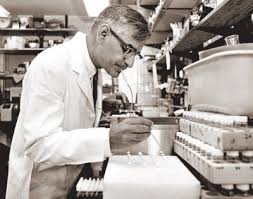Dr. Har Gobind Khorana, an India-born US resident, made groundbreaking contributions to genetics and molecular biology.
Gene Synthesis (1976): He successfully synthesized a complete gene of the bacterium Escherichia coli using off-the-shelf chemicals. This was a landmark achievement in genetic engineering and synthetic biology.
Nobel Prize (1968): Dr. Khorana, along with Robert W. Holley and Marshall W. Nirenberg, was awarded the Nobel Prize in Physiology or Medicine for decoding the genetic code and demonstrating how nucleotides (DNA & RNA) determine protein synthesis. This discovery paved the way for genetic engineering and biotechnology advancements.
Laboratory DNA Synthesis: His work opened the possibility of artificially producing DNA in a laboratory, revolutionizing medicine, gene therapy, and biotechnology.
Dr. Khorana’s discoveries played a crucial role in genetic research, synthetic biology, and biotechnology, influencing everything from genetic engineering to medical advancements like gene therapy and synthetic DNA production.







